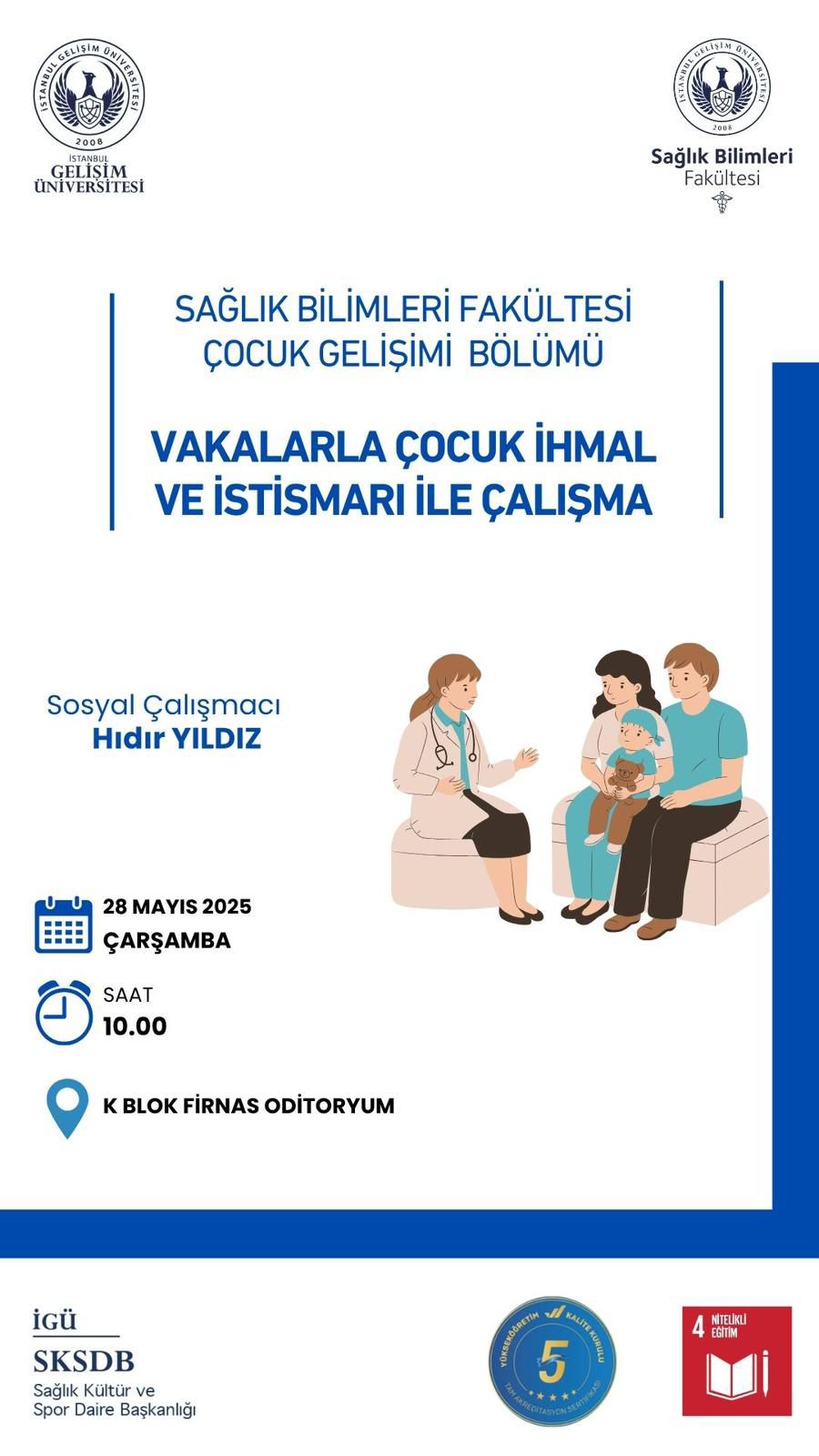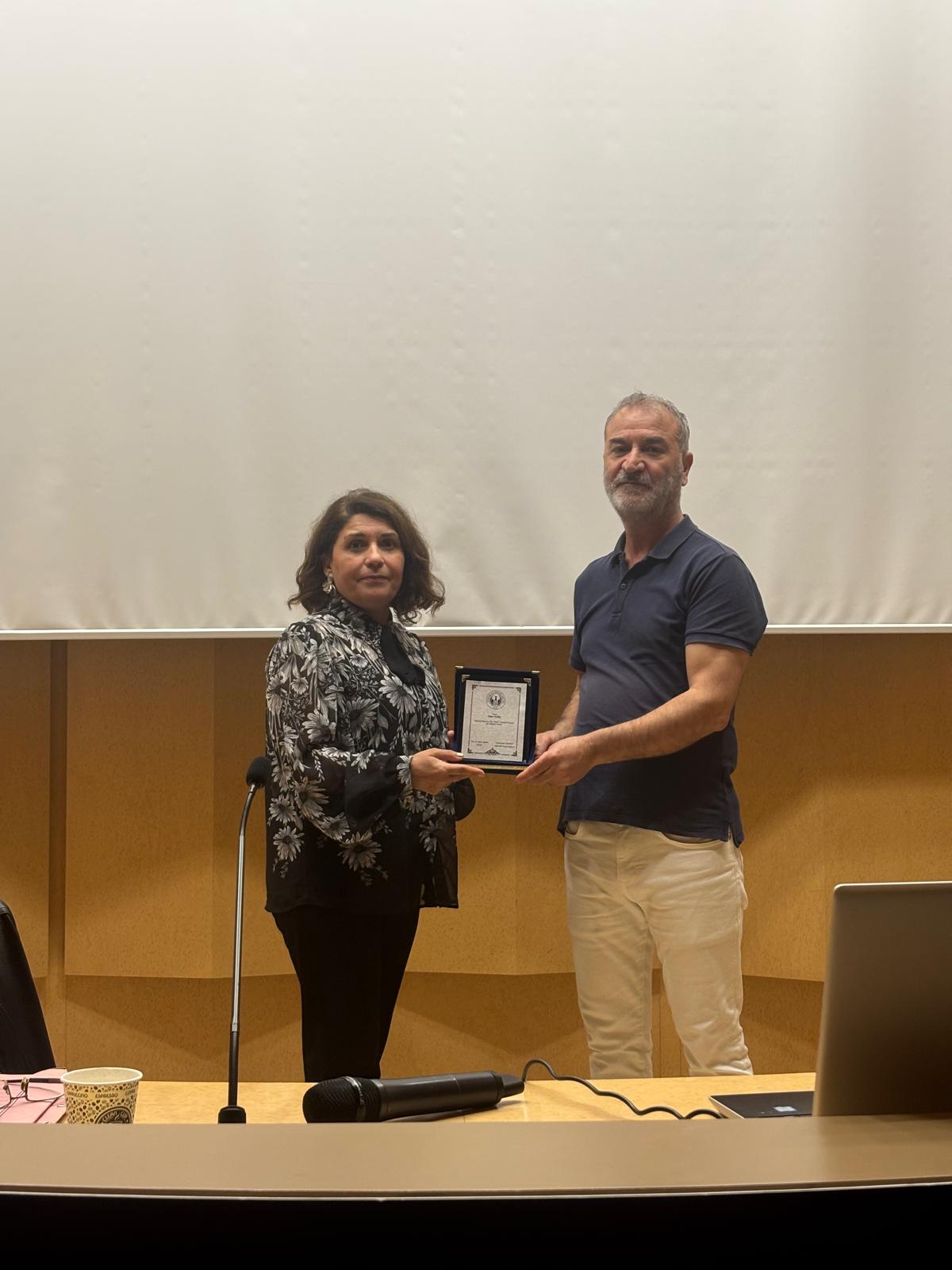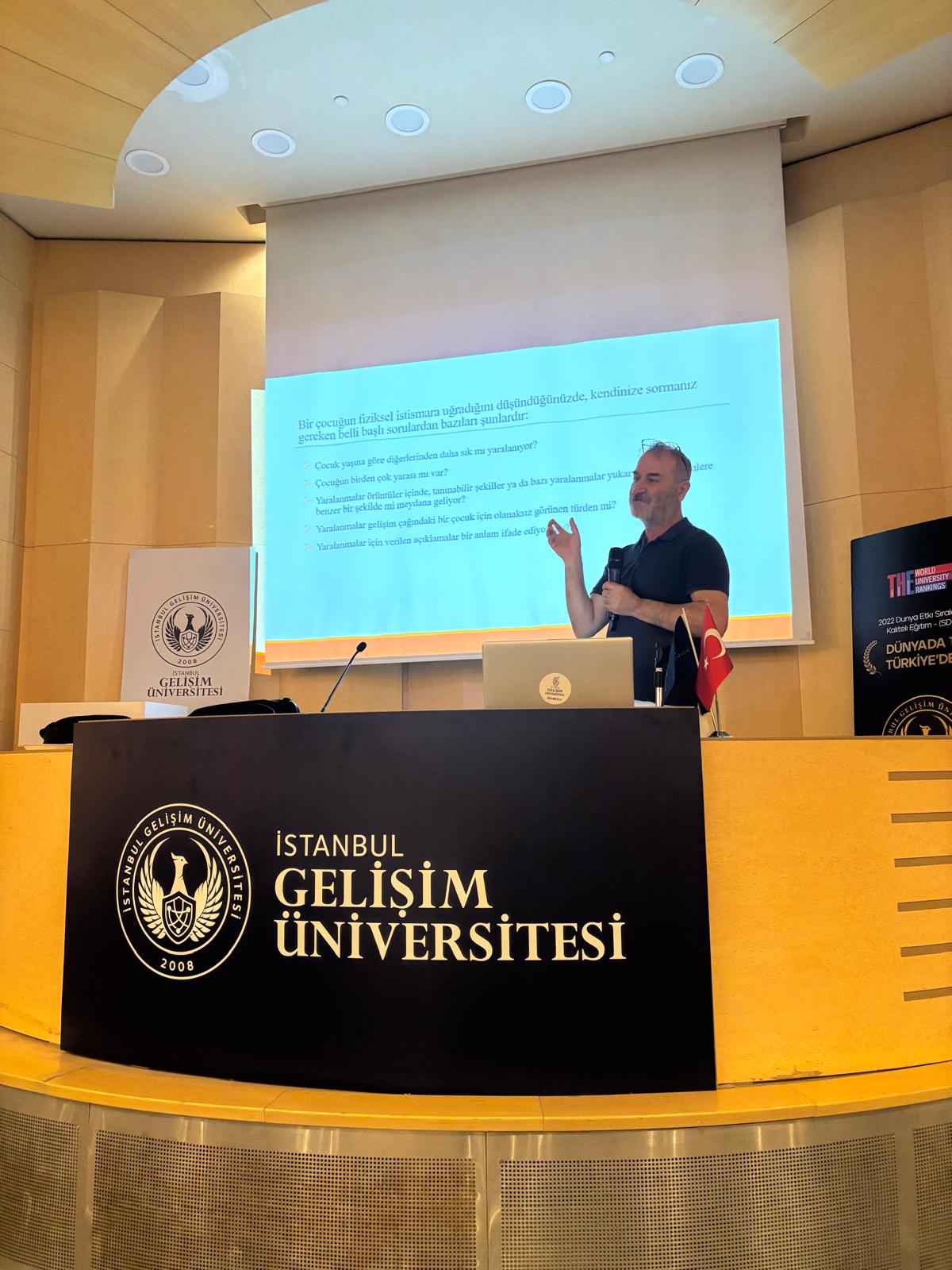Mr. YILDIZ commenced the seminar by defining the term "child." Legally, a child is defined as any individual under the age of eighteen. He emphasized that this definition is consistent within both Turkish legislation and international legal frameworks. According to the Turkish Civil Code, an individual is considered a child until they reach the age of eighteen. He elaborated that child neglect and abuse refer to actions or omissions that negatively impact a child’s physical, emotional, mental, or social development. Such behaviors may originate from the child’s caregivers or from external individuals. He highlighted that both neglect and abuse severely hinder a child's healthy development and may cause long-term physical and psychological harm.
Child neglect was defined as the failure to meet a child’s fundamental needs—such as nutrition, shelter, healthcare, education, love, and safety. He explained that this deficiency may be intentional or result from ignorance or oversight. For instance, persistently depriving a child of food, obstructing their access to healthcare, or excluding them from education are all categorized under neglect. Child abuse, on the other hand, was described as any action that causes physical, emotional, sexual, or economic harm to the child. Physical abuse includes direct acts of violence such as hitting, pushing, or burning. Emotional abuse comprises behaviors that damage the child’s psychological well-being, including humiliation, threats, or emotional deprivation. Sexual abuse involves exposing a child to sexual acts for which they cannot legally give consent. Economic abuse encompasses practices such as forcing a child to work or exploiting them for financial gain. Mr. YILDIZ underlined that neglect and abuse are often difficult to detect and carry long-term consequences. Therefore, he stressed the critical importance of societal awareness and the effective enforcement of child protection laws to ensure children's safety and healthy development.
Further addressing the topic, Mr. YILDIZ discussed the tendency of neglected children to engage in delinquent behavior. He noted that when a child’s fundamental needs are unmet and they are deprived of adequate attention and supervision, they may gradually become prone to criminal activity. This often stems from a lack of a nurturing environment, insufficient guidance, and social exclusion. He emphasized that when children are denied family and community support to fulfill their basic needs—such as love, security, education, and direction—they are compelled to survive on their own, which significantly increases the likelihood of delinquency, especially in high-risk environments. To prevent such outcomes, he emphasized the need for supportive family settings, educational opportunities, psychological services, and effective implementation of social policies.
As part of the event, Mr. YILDIZ invited eight student volunteers to the stage. Seven of them linked arms to form a circle, while one student stood in the center. Mr. YILDIZ instructed the student in the middle to attempt to exit the circle, while those forming the circle were asked to prevent this. Eventually, the student in the center managed to break free after considerable effort. Then, Mr. YILDIZ asked that student to rejoin the circle and requested another student to take their place in the center. After repeating the exercise, he asked the students who had been inside the circle to describe how they felt. They expressed feelings of loneliness and anxiety. When asked how they felt while outside the circle, the same students reported feeling powerful. Mr. YILDIZ also asked the other students in the circle to share their emotions. Through this psychodrama activity, he encouraged both the participating students and the audience to reflect deeply on the emotional and psychological impact of exclusion and neglect.
At the conclusion of the event, the Head of the Department of Child Development, Assist. Prof. Dr. Nurten ELKİN, emphasized the public health significance of child neglect and abuse. She shared insights aimed at raising awareness to prevent such issues and presented a plaque to Social Worker Hıdır YILDIZ in appreciation of his valuable contribution, formally concluding the event.







